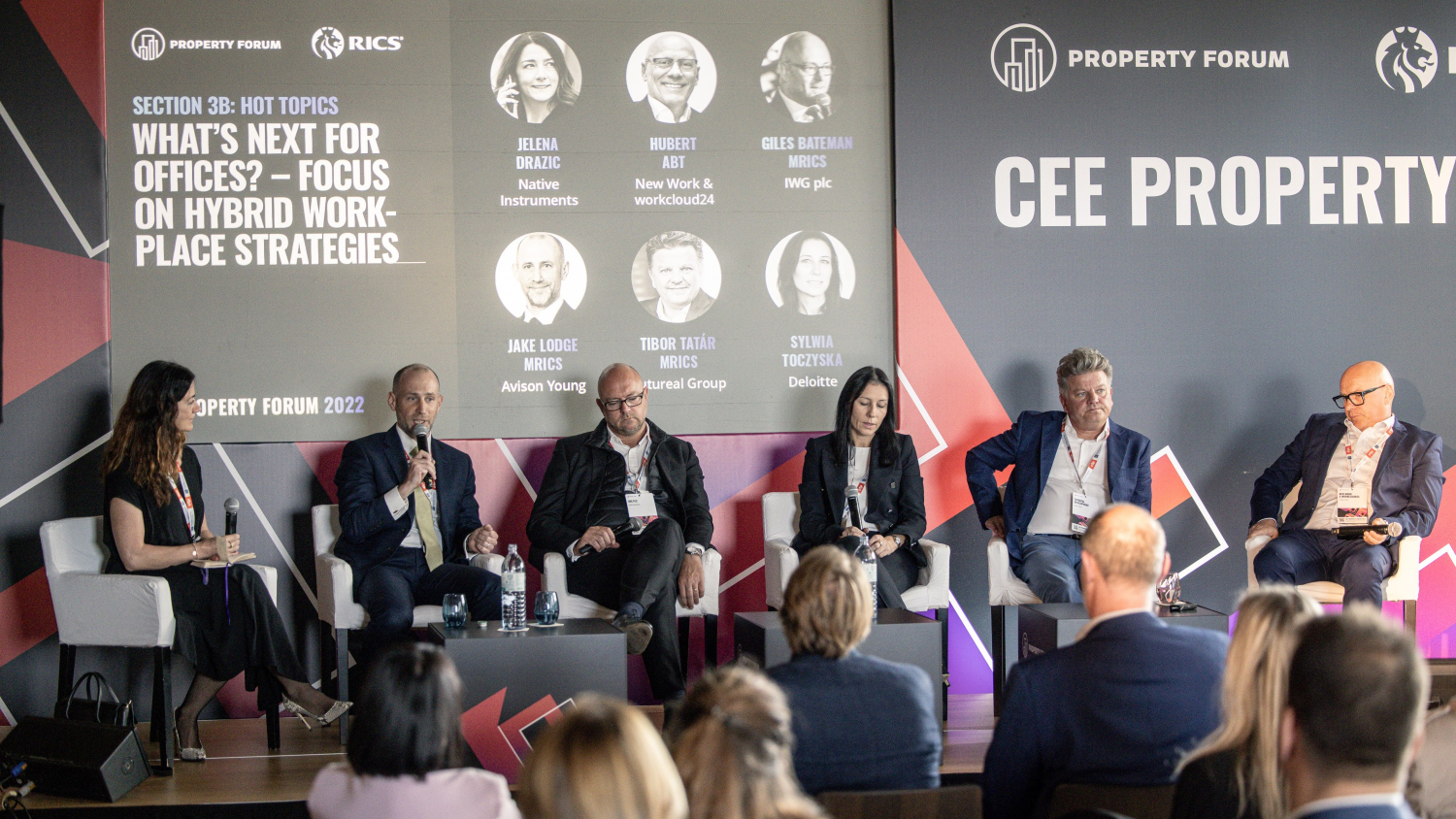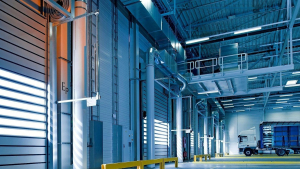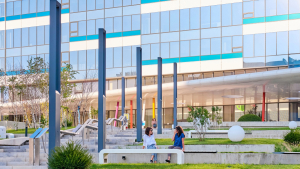
Demand for offices will shrink in the future due to the adoption of hybrid work arrangements, which also helps companies save money, commented speakers of the workplace strategies panel of CEE Property Forum 2022, held in Vienna.
Jelena Drazic, Senior Manager Global Workplace Experience, Native Instruments, who chaired the panel, pointed out that power has shifted from employers to employees when it comes to workspaces and experiences.
According to Hubert Abt, CEO, New Work & workcloud24, if companies do not change their culture, they are not ready for the adoption of hybrid work systems. He went on to say that office as a space is out, while the future is that of space as a service.
CFO surveys and whitepapers show that as the economy gets challenging, companies drive even further the hybrid work due to cost concerns, mentioned Giles Bateman MRICS, Head of Real Estate Europe – Network Development, IWG plc. Companies will move to distributed workforces and will start to offer the option for work from other locations than the home, he added.
We are seeing that SMEs have focused on using their office space, while large corporates are the first to leave and the last to return. In high-performance business lines, the approach was to spend more time at the office, even during the pandemic, said Jake Lodge MRICS, Principal, Managing Director – Hungary, Avison Young.
Tibor Tatár MRICS, CEO, Commercial Development, Futureal Group, commented that developers have to face the reality that hybrid work will reduce demand for offices. Moreover, companies that cut their office space are using part of their savings from this move to redesign the offices for the younger generations.
In the past, employees wanted to be in the office one day per week, but now the number of days has increased to 2-3 days per week, explained Sylwia Toczyska, Associate Partner, Deloitte. She went on to say that offices are places where you can be more creative and maintain professional relations.



